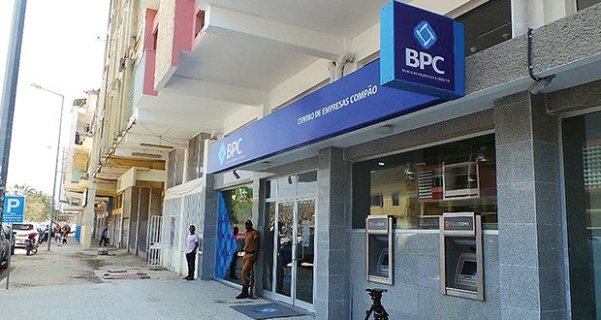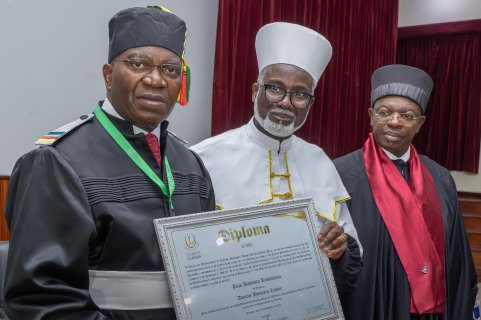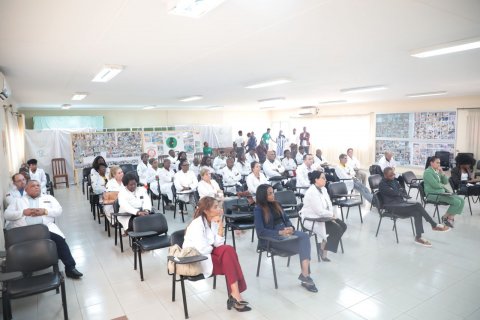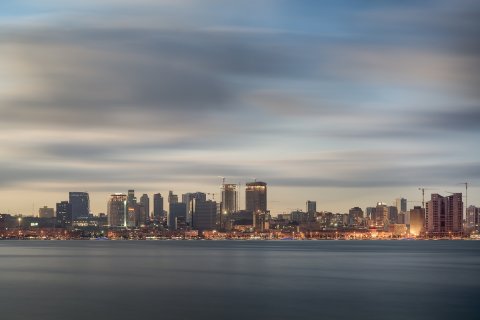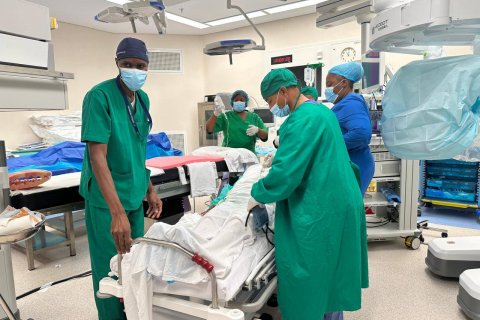Cláudio Pinheiro advanced the information in statements to the press, at the end of the presentation of the Study Banking in Analysis, by Deloitte Angola, which points to a drop in the net income of Angolan banking from 13.6 percent, in 2022, in homologous terms, to 367 billion kwanzas, essentially due to the worsening of BPC's losses and increase in impairments.
The chairman of BPC's Board of Directors expressed confidence in the indicators achieved by the largest Angolan public bank, in the last two years, which signal a "growth path, with positive results".
For Cláudio Pinheiro, with the results for 2022 and for the current year, "the foundations have been laid" to reverse "the difficult situation due to the bad debt portfolio" and signals "the definitive end of the bank to walk in negative territory, for the trajectory of growth and positive results".
According to the official, the bank has been implementing the Recapitalization and Restructuring Plan, with 80 percent of the non-performing loan portfolio transferred to Recredit, "and because of this, impairments were constituted, which constitute costs that ended up leading to a need for recapitalization".
"After the recapitalization and also the investments in technology, in the management of IT systems, in labor discipline, in the optimization of operating costs, it was possible to bring the bank to a position of growth in the banking product", he highlighted.
"The bank came out of sixth position, in terms of deposits, and as a result of the confidence it has recovered in the market and its customers, it was possible to also aim for fifth position, having the deposit portfolio", he underlined.
In terms of credit growth, the study reveals that it was BPC that had the second highest growth rate, which "indicates that the bank has in fact resumed its normal process of granting credit", stressed Cláudio Pinheiro.
According to the president of BPC, the bank is not granting credit to the productive sector, but to families, to private customers, "which is the bank's traditional segment".
"And when we say financing to families, to individuals, we are exactly saying that we are financing consumption, we are financing the needs of individuals, who will boost, who will direct demand to supply in the economy", he said.
"Therefore, the bank here signals a recovery and with the speed that is required, for what is its repositioning", he added.
With regard to non-performing loans in this new wave of lending, Cláudio Pinheiro said that it was around 1 percent, as a result of the optimization of key business processes, which today allows for "risk identification, risk assessment, very more responsible".
"And a monitoring by the 'board', by the various credit committees very close to the situation of any default and, therefore, we are going around a default ratio for new loans, of the new credit portfolio, around 1 percent," he said.
Cláudio Pinheiro said that since 2021, the bank has not closed bank branches or laid off workers, noting that "induced departures" have been happening (terminations by mutual agreement, initiatives by the employee himself and programs to anticipate retirement).
With regard to branches, he indicated that the commercial network is currently optimized for the bank's needs and repositioning strategy in the market, satisfying the current number of branches.
In 2017, BPC recorded a hole of US$5,200 million in non-performing and non-performing assets, essentially bad loans, the second worst record in the history of banking in Angola.

